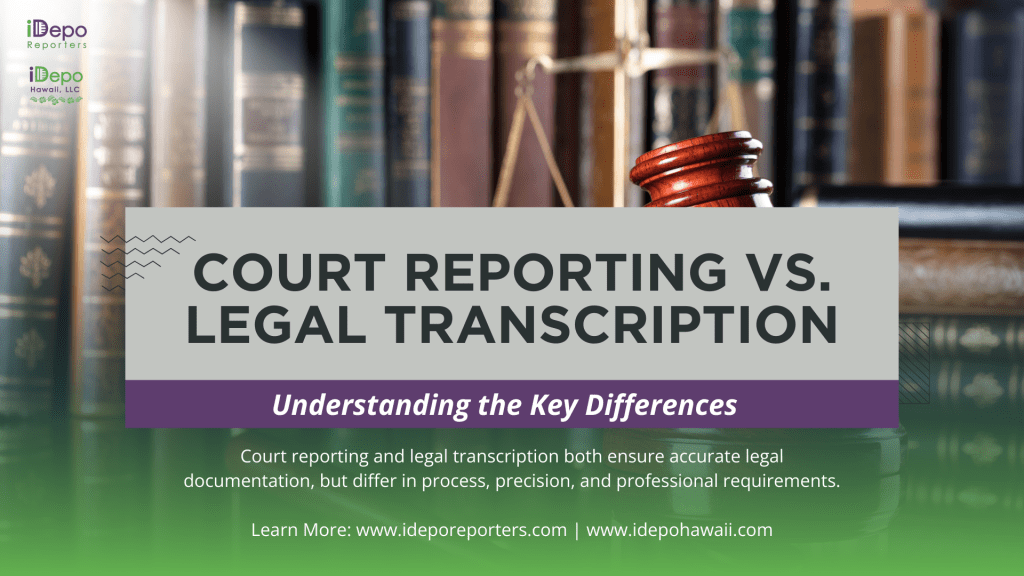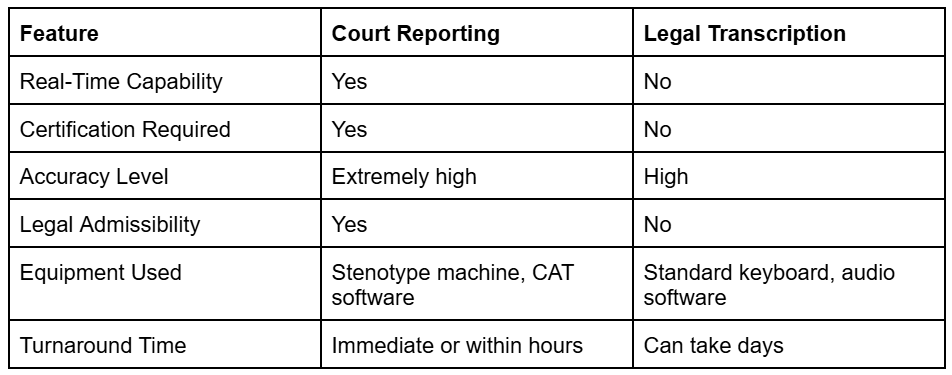
Court Reporting vs. Legal Transcription: Understanding the Key Differences
The legal industry relies on accurate documentation of proceedings, testimony, and legal discussions. While court reporting and legal transcription both serve this purpose, they differ significantly in their process, level of accuracy, and professional requirements.
What is Court Reporting?
Court reporting involves real-time transcription of legal proceedings, such as trials, depositions, and hearings. Certified court reporters (or stenographers) use specialized technology, such as stenotype machines or voice-writing software, to capture every word spoken.
Key Features of Court Reporting:
✔ Real-Time Transcription: Court reporters provide immediate transcripts, often used during live proceedings.
✔ Certification & Training: Court reporters undergo rigorous training and must be certified in most jurisdictions.
✔ Legal Recognition: Court reporters create official legal records admissible in court.
✔ Specialized Equipment: Uses stenotype machines, CAT (computer-aided transcription) software, or voice-writing technology.
What is legal transcription?
Legal transcription involves converting pre-recorded audio or video files into text. Legal transcriptionists do not work in real-time and typically transcribe dictated notes, depositions, or court proceedings from recordings.
Key Features of Legal Transcription:
✔ Post-Event Transcription: Transcriptionists work on recorded legal materials rather than live proceedings.
✔ No Certification Required: Unlike court reporters, legal transcriptionists do not need formal certification (though training is beneficial).
✔ General Equipment: Uses standard audio playback software, foot pedals, and text editing tools instead of stenography machines.
✔ Lower Cost: Legal transcription is generally more affordable as it does not require real-time expertise.
Court Reporting vs. Legal Transcription: A Side-by-Side Comparison

Which One Do You Need?
– Choose Court Reporting if you need real-time, highly accurate transcripts with legal certification. It’s essential for court proceedings, depositions, and arbitrations.
– Choose Legal Transcription if you require post-event documentation of recordings at a lower cost. It’s useful for legal memos, dictated notes, and interviews.
Final Thoughts
Both court reporters and legal transcriptionists play vital roles in the legal industry. However, if accuracy, real-time availability, and legal admissibility are crucial, court reporting is the gold standard. On the other hand, if you need a cost-effective transcription solution for recorded materials, legal transcription is a great alternative.
Need expert court reporting or transcription services? iDepo Reporters has you covered!





